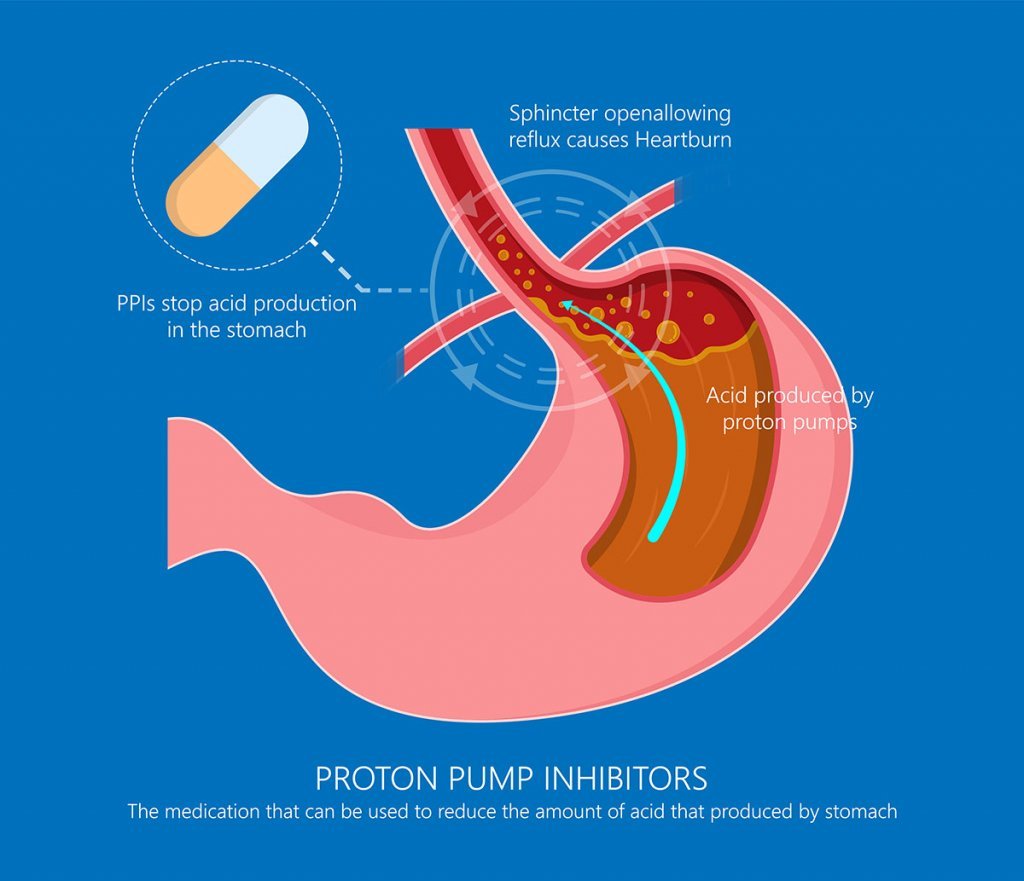4 GERD Treatment Options

According to the National Institute of Diabetes and Digestive and Kidney Diseases (NIDDKD), about 20% of the US population is affected by gastroesophageal reflux disease (GERD). GERD Awareness Week 2020 is coming up on November 17-23, which provides the perfect opportunity for exploring the different GERD treatment options that are available. Depending on the severity of your symptoms, your doctor may recommend lifestyle changes, medicines, surgery, or a combination.
1. Lifestyle and Dietary Changes
Making lifestyle changes can reduce your GERD and GERD symptoms. You should
- Lose weight, if needed.
- Identify and avoid foods that trigger reflux episodes
- Wear loose-fitting clothing around your abdomen. Tight clothing can squeeze your stomach area and push acid up into your esophagus.
- Stay upright for 3 hours after meals. Avoid reclining and slouching when sitting.
- Sleep at a slight angle. Raise the head of your bed 6 to 8 inches by safely putting blocks under the bedposts. Just using extra pillows will not help.
- Quit smoking and avoid secondhand smoke.
2. Medication
If lifestyle changes don’t provide enough relief, then there are several medications that are GERD treatment options.
- Antacids: Over-the-counter antacids are best for intermittent and relatively infrequent symptoms of reflux. When taken frequently, antacids may worsen the problem. They leave the stomach quickly, and your stomach actually increases acid production as a result.
- Histamine 2 (H2) Blockers: Histamine 2 (H2) blockers are drugs that help lower acid secretion. H2 blockers heal esophageal erosions in about 50 percent of patients.
- Proton pump inhibitors (PPIs): Proton pump inhibitors (PPIs) are drugs that block the three major pathways for acid production. PPIs suppress acid production much more effectively than H2 blockers. PPIs heal erosive esophagitis in many patients, even those with severe esophageal damage.
- Prokinetic agents: Prokinetic agents are drugs that enhance the activity of the smooth muscle of your gastrointestinal tract. These drugs are somewhat less effective than PPIs. Your doctor may prescribe them in combination with an acid-suppressing drug.
3. Surgery
GERD is usually controlled with medications and lifestyle changes (like eating habits). If these don’t work, or if you can’t take medications for an extended period, surgery may be a solution.
There are two main types of surgical GERD treatment options:
- Laparoscopic antireflux surgery (or Nissen fundoplication) is the standard surgical treatment. It’s a minimally invasive procedure that fixes your acid reflux by creating a new valve mechanism at the bottom of your esophagus. The surgeon wraps the upper part of the stomach (the fundus) around the lower portion of the esophagus. This reinforces the lower esophageal sphincter so food won’t reflux back into the esophagus.
- LINX device implantation is another minimally invasive surgery. A LINX device is a ring of tiny magnets that are strong enough to keep the junction between the stomach and the esophagus closed to refluxing acid but weak enough to allow food to pass through.
4. Endoscopic Therapy
In recent years, new treatments using endoscopic technology to relieve the symptoms of GERD. One type is transoral incisionless fundoplication (TIF). This is an option to address GERD. TIF can mean a shorter treatment time, less pain, and faster recovery compared to laparoscopic surgery. The procedure involves using a special TIF device to create a passageway for a flexible, tube-like imaging instrument called an endoscope.
Currently, there are clinical trials testing the efficacy of other endoscopic therapy for GERD. One form of therapy uses an endoscopic sewing machine to place sutures in the stomach and increase the anti-reflux barrier.
Contact a Gastroenterologist
If you are struggling with the symptoms of GERD, you should seek medical attention from a GI specialist for evaluation and treatment. The team at Birmingham Gastroenterology has decades of experience treating diseases and disorders in all parts of the digestive system. This includes helping to diagnose and form treatment plans for GERD. To make an appointment, call us at (205) 271-8000.

